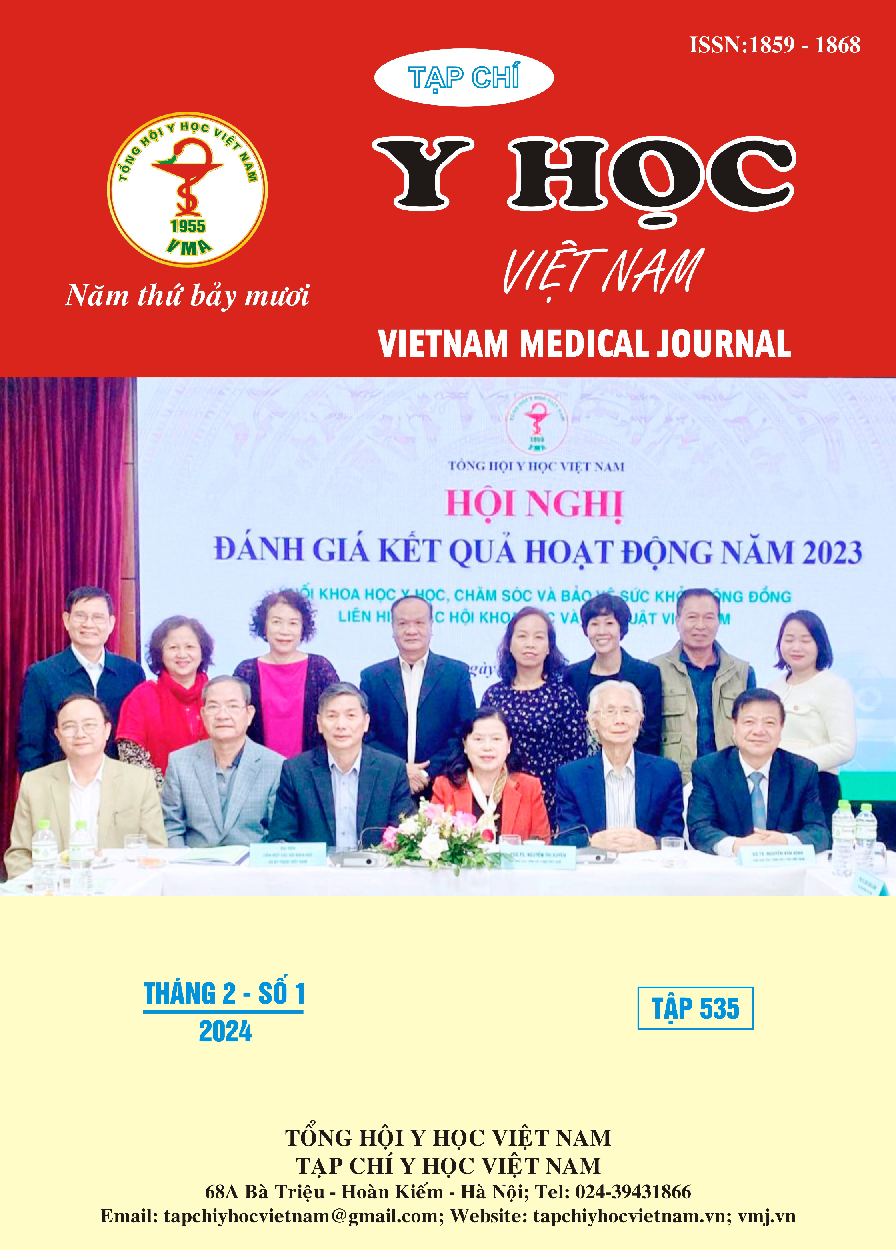KẾT QUẢ XÁC ĐỊNH NGUY CƠ UNG THƯ VÚ BẰNG PHẦN MỀM CANRISK
Nội dung chính của bài viết
Tóm tắt
Mục tiêu: Nhận xét kết quả và ứng dụng của phần mềm Canrisk trong xác định nguy cơ ung thư vú. Phương pháp nghiên cứu: Thực hiện tính toán nguy cơ ung thư vú bằng phần mềm Canrisk trên 40 đối tượng đã được chẩn đoán xác định ung thư vú tại bệnh viện K. Dữ liệu đầu vào gồm thông tin về các yếu tố nguy cơ và đột biến gen được thực hiện hồi cứu trên hồ sơ bệnh án. Kết quả: Trong 40 trường hợp được xác định ung thư vú khi khảo sát bằng phần mềm Canrisk, có 07 trường hợp cho kết quả nguy cơ cao (17,5%). Các trường hợp còn lại được xếp vào nhóm nguy cơ dân số. 01 trường hợp ung thư vú có tính chất gia đình được tính toán tỷ lệ mang gen BRCA1/2 ở đối tượng và người thân của họ dẫn đến khuyến nghị xét nghiệm gen, khi được làm xét nghiệm theo hướng dẫn đều mang đột biến trên BRCA1. Kết luận: Kết quả của nghiên cứu bước đầu cho thấy Canrisk có khả năng dự đoán tỷ lệ mang gen BRCA1/2 trong trường hợp ung thư vú có tính chất gia đình ở Việt Nam, có hiệu quả trong dự đoán nguy cơ mắc ung thư vú ở người mang đột biến gen BRCA1/2 nhưng chưa có sự nổi bật so với biện pháp sàng lọc thông thường ở tất cả các trường hợp.
Chi tiết bài viết
Tài liệu tham khảo
2. Lee AJ, Cunningham AP, Kuchenbaecker KB, et al. BOADICEA breast cancer risk prediction model: updates to cancer incidences, tumour pathology and web interface. Br J Cancer. 2014;110(2):535-545. doi:10.1038/bjc.2013.730
3. National Collaborating Centre for Cancer (UK). Familial Breast Cancer: Classification and Care of People at Risk of Familial Breast Cancer and Management of Breast Cancer and Related Risks in People with a Family History of Breast Cancer. National Collaborating Centre for Cancer (UK); 2013. Accessed October 3, 2023. http://www.ncbi.nlm.nih.gov/books/NBK247567/
4. Lakeman IMM, Rodríguez-Girondo M, Lee A, et al. Validation of the BOADICEA model and a 313-variant polygenic risk score for breast cancer risk prediction in a Dutch prospective cohort. Genet Med Off J Am Coll Med Genet. 2020;22(11): 1803-1811. doi: 10.1038/s41436-020-0884-4
5. Pal Choudhury P, Brook MN, Hurson AN, et al. Comparative validation of the BOADICEA and Tyrer-Cuzick breast cancer risk models incorporating classical risk factors and polygenic risk in a population-based prospective cohort of women of European ancestry. Breast Cancer Res BCR. 2021;23(1):22. doi: 10.1186/ s13058-021-01399-7
6. Esserman LJ, Thompson IM, Reid B, et al. Addressing overdiagnosis and overtreatment in cancer: a prescription for change. Lancet Oncol. 2014;15(6): e234-242. doi: 10.1016/S1470-2045 (13)70598-9
7. Antoniou AC, Hardy R, Walker L, et al. Predicting the likelihood of carrying a BRCA1 or BRCA2 mutation: validation of BOADICEA, BRCAPRO, IBIS, Myriad and the Manchester scoring system using data from UK genetics clinics. J Med Genet. 2008;45(7):425-431. doi: 10.1136/jmg.2007.056556
8. Fischer C, Kuchenbäcker K, Engel C, et al. Evaluating the performance of the breast cancer genetic risk models BOADICEA, IBIS, BRCAPRO and Claus for predicting BRCA1/2 mutation carrier probabilities: a study based on 7352 families from the German Hereditary Breast and Ovarian Cancer Consortium. J Med Genet. 2013;50(6):360-367. doi:10.1136/jmedgenet-2012-101415


